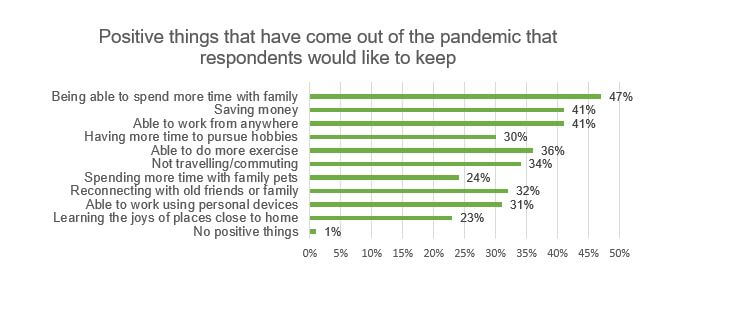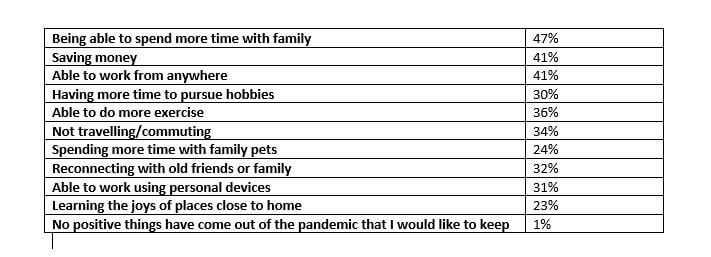New global research commissioned by Kaspersky of 8,000 SMB workers across multiple industries has revealed that almost three quarters of employees (88 percent) want to rethink pre-COVID-19 ways of working. Instead of returning to business as usual, workers worldwide are now shaping a future of business on their terms, whether that’s spending more time with loved ones (47 percent), saving money (41 percent), or working remotely (41 percent).
Suddenly faced with an overwhelmingly remote workforce, business leaders now need to adapt fast to remain secure and resilient, whilst employees are using this moment of change as an opportunity to reassess yesterday’s priorities, and plan a future around what really matters to them. And as work and home lives are transformed, it’s employees who now see themselves in the driving seat.
In casting off the shackles of previously rigid job routines, employees are rethinking the next normal for work, inspiring more agile, accommodating, and humane work cultures. Moving forward, almost two in five workers (45 percent) want to leave behind the 9-5 working structure. A similar number (40 percent) are ready to see the back of fixed office desks, and around a third (39 percent) want to end the five-day working week.
The research also highlighted that nearly a third (47 percent) of employees see remote working as the third greatest benefit which comes as a by-product of the novel coronavirus, after spending time with family (41 percent) and saving money (41 percent). In fact, most of the advantages revolve around pursuing new opportunities for personal enrichment outside of work, as getting that work-life balance becomes even more important.

Yet as employees continue to embrace more forward-thinking and flexible ways of working, it is critical that businesses augment and adapt the support they provide. Given that well over a third (40 percent) of the workforce actively seeks more technology support from their organisation when working remotely, the need to provide the tools and technology to keep users productive, connected and secure has never been greater.

Alexander Moiseev, Chief Business Officer at Kaspersky, said, “We are facing a defining moment in time, and this is very exciting. It’s clear this pandemic has accelerated digital transformation and the blending of our work and homes lives. What we’re now seeing is employees using technology to own a new future, and actively taking the lead in embracing changes in pursuit of greater freedom and flexibility. Companies now have a mandate to adapt and remodel the modern workplace into something more productive, sustainable and malleable.”
To help organisations keep their flexible workforces secure, Kaspersky suggests following these recommendations:
- Empower employees to become more cyber-aware. Whether you’re working from home or in a café, remote working inspires a completely new shift in the behaviour and mindset of employees.
- Boost your workforce’s cyber-knowledge with Kaspersky’s Automated Security Awareness Platform, and motivate them to apply the knowledge they’ve gained in everyday life with the [Dis]Connected game.
- Take key data protection measures to safeguard corporate data and devices, including switching on password protection, encrypting work devices, and ensuring data is backed up.
- Build security inside and outside of the office. Securing employees at their desks or on the go regardless of the device they’re using is now easier than ever through solutions such as Kaspersky Endpoint Security Cloud.
The full report, ‘Securing the Future of Work’, can be found here. To find out more about Kaspersky Endpoint Security Cloud and how it can deliver robust protection against evolving threats, visit the website.





